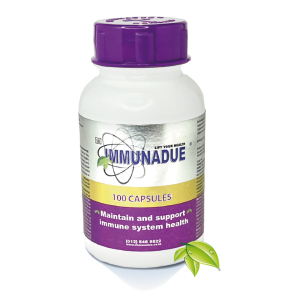- Class of Vitamin:
-
- Water-Soluble:
- Vitamin C, also known as Ascorbic Acid, is water-soluble. It dissolves in water and is not stored in the body, necessitating regular intake.
- How the Body Utilizes Vitamin C:
Ascorbic Acid plays a crucial role in various bodily functions, including:
-
- Collagen Synthesis: Essential for the formation of collagen, a key protein in skin, blood vessels, and connective tissues.
- Antioxidant Activity: Acts as an antioxidant, protecting cells from damage caused by free radicals.
- Immune System Support: Boosts the immune system, aiding in the prevention and treatment of infections.
- Vitamin C Supplement Dosage:
-
- Recommended Daily Allowance (RDA): The RDA for Vitamin C varies by age, gender, and life stage. Generally, adults need around 90 mg per day for men and 75 mg per day for women.
- Typical Dietary Intake: The typical dietary intake varies but can be met through a balanced diet rich in fruits and vegetables.
- Tolerable Upper Intake Level (UL): The UL for adults is 2,000 mg per day. Exceeding this level may lead to adverse effects.
- Symptoms of a Vitamin C Shortage:
A deficiency in Vitamin C can lead to:
-
- Scurvy: Characterized by fatigue, swollen and bleeding gums, joint pain, and anemia.
- Impaired Wound Healing: Slowed healing of wounds and bruises.
- Increased Susceptibility to Infections: Due to a weakened immune system.
- Symptoms of Too Much Vitamin C:
Excessive intake of Vitamin C, usually from supplements, can cause:
-
- Digestive Issues: Including diarrhea, nausea, and abdominal cramps.
- Kidney Stones: High doses may increase the risk of kidney stone formation.
- Various Forms of Vitamin C Supplements:
Common forms include Ascorbic Acid, Calcium Ascorbate, and Sodium Ascorbate. Ascorbic Acid is the most common and cost-effective form, while buffered forms like Calcium Ascorbate are gentler on the stomach. Combining Vitamin C with bioflavonoids can enhance absorption.
- Various Food Sources of Vitamin C:
Include the following foods in your diet to ensure adequate Vitamin C intake:
-
- Citrus Fruits: Oranges, lemons, grapefruits.
- Berries: Strawberries, blueberries, raspberries.
- Vegetables: Bell peppers, broccoli, spinach.
- Tropical Fruits: Pineapple, mango, kiwi.
- How to Take Vitamin C:
- Meal Timing: Can be taken with or without meals; taking it with meals may enhance absorption.
- Time of Day: No specific time restrictions.
- Positive and Negative Interactions:
Positive Interactions:
-
- Iron: Enhances the absorption of non-heme iron from plant-based foods.
Negative Interactions:
-
- Vitamin B12: High doses of Vitamin C may interfere with the absorption of B12.
- Contraindications and Risks:
-
- Kidney Issues: Individuals with kidney problems should avoid excessive Vitamin C intake.
- Certain Medications: Consult a healthcare professional if taking medications that may interact with Vitamin C.
- Always consult a healthcare provider before making significant changes to your Vitamin C intake, especially if dealing with existing health conditions or taking medications






Reviews
There are no reviews yet.